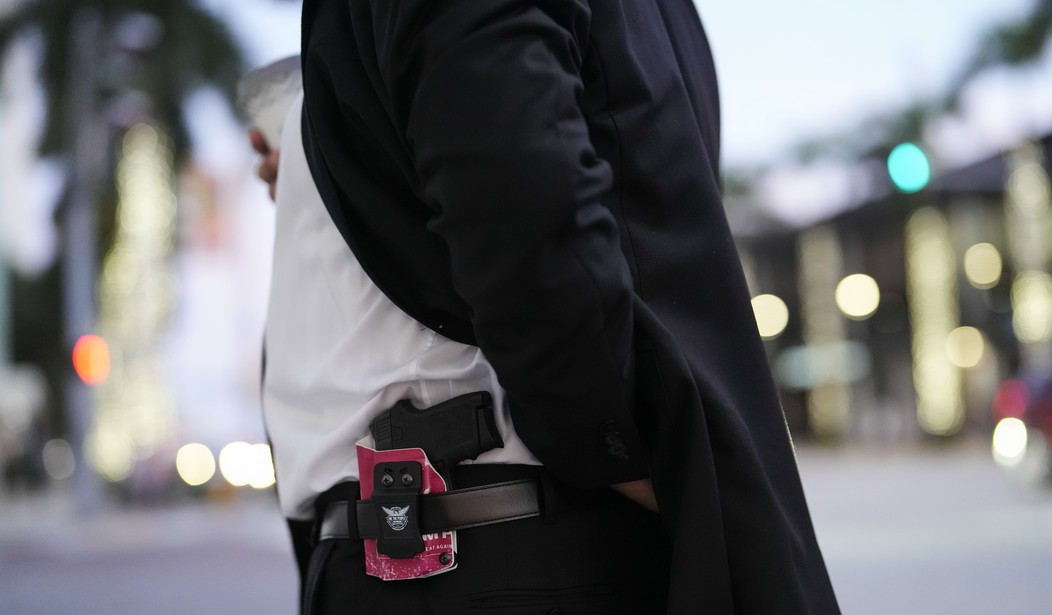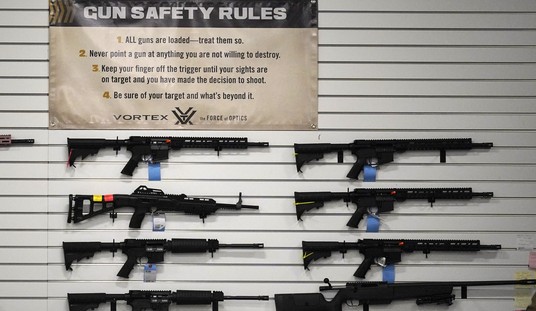After the success of Tuesday's elections, a national right-to-carry reciprocity law is one of the top priorities for many Second Amendment advocates. There's already one group of Americans who essentially have the right to bear arms across state lines; active duty and retired police officers.
The Law Enforcement Officers Safety Act, enacted in 2004, provides that a "qualified law enforcement officer" or a "qualified retired law enforcement officer" can lawfully carry a concealed firearm in every U.S. state and territory, so long as they have the proper credentials. Individuals covered under LEOSA are still subject to state laws regulating where guns can be carried, but a police officer or retired cop from, say, Nebraska, can still bear arms in California even though the state doesn't recognize any out-of-state carry permits.
The Federal Law Enforcement Officers Association, however, says the state of Rhode Island isn't following the law when it comes to LEOSA, and the group is now suing the state's Attorney General and Police Superintendent over a policy that conflicts with the federal statute.
“In violation of this federal right, Rhode Island criminalizes the concealed carry of a firearm unless the retired officer obtain a separate, Rhode-Island specific permit. The Rhode Island permit is not a LEOSA identification. Moreover, unlike LEOSA identification, the Rhode Island permit requires a separate application fee, imposes more onerous requirements than otherwise mandated by LEOSA, and can be denied or revoked in the sole discretion of the Superintendent of State Police.”
FLEOA, in the suit, “seeks a declaration that Rhode Island’s laws are preempted and seeks a judgment that the enforcement of those laws violates the rights of its members.”
In 2022, FLEOA filed a similar case in New Jersey, and it was reported that the law enforcement organization won the lawsuit. That case was appealed.
According to FLEOA's law firm in a statement, "In a unanimous opinion issued on February 14, 2024, the appellate court affirmed the lower court’s ruling and concluded that the LEOSA preempts contrary aspects of New Jersey law and provides qualified retired officers, including those who retired from New Jersey agencies, with an enforceable right to concealed carry under Section 1983 of the Civil Rights Act, and upheld the district court’s injunction."
Rhode Island is one of a handful of states that doesn't recognize any out-of-state carry permit, but even though they're depriving visitors of their Second Amendment rights, LEOSA should still cover qualified active duty and retired law enforcement officers. Instead, the state contends that retired officers must obtain a Retired Police Officer permit (or a Rhode Island concealed carry permit) before they can lawfully bear arms in the state.
In its lawsuit, FLEOA argues that the RPO permit doesn't qualify as LEOSA identification, and also imposes stricter requirements than the federal statute.
Another inconsistency between federal law and Rhode Island’s statute is the Rhode Island RPO Permit is only valid for four years, according to the lawsuit.
The FLEOA says, “In addition, the decision to issue a Rhode Island RPO Permit by the Attorney General is discretionary (“may issue”) and, once issued, the Rhode Island RPO Permit may be revoked—again, at the discretion of the State—at any time for ‘just cause.’ Indeed, ‘a pistol permit is a privilege left to the sole discretion of the Attorney General.’”
That clearly conflicts with what the Supreme Court said in Bruen about "may issue" licensing regimes. The Rhode Island legislature should have changed that statute a couple of years ago, but I guess the Democrats in charge of the state legislature were too busy passing magazine bans to worry about complying with a Supreme Court decision.
I'm not a huge fan of the federal government giving current and retired law enforcement the ability to carry across state lines when the average citizen can't do the same, to be honest. A national right-to-carry reciprocity law that applies to all lawful gun owners is what's really needed, and if that was already in place this wouldn't be an issue. Until that day comes, though, anti-2A states like Rhode Island should still be compelled to follow federal law. New Jersey has already been brought to heel, and hopefully that will soon be the case for Rhode Island as well.









Join the conversation as a VIP Member